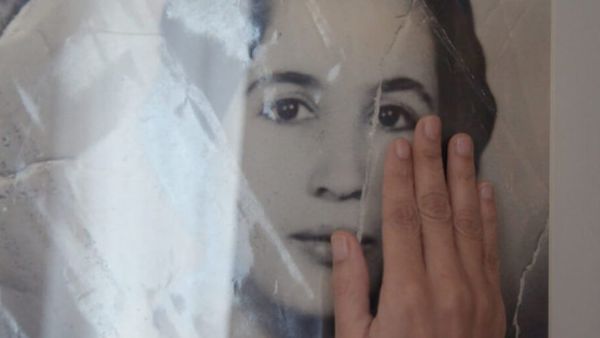Eye For Film >> Movies >> A Way Home (2020) Film Review
A Way Home
Reviewed by: Amber Wilkinson

Increasing numbers of personal family documentaries seem to have emerged in recent years, with directors often holding their family histories up to the light through conversations with an elderly loved one. While some, like the quirky, life-affirming Dick Johnson Is Dead achieve a universal resonance, others, though no doubt heartfelt and well made, struggle to escape the feel of a family therapy session.
A Way Home falls into the latter camp, as director Karima Saïdi records conversations with her mother Aïcha, who is living with Alzheimer's. Now in a care home in Belgium, where she migrated from Morocco, when her children were young, Karima uses still photographs in a bid to prompt her mother's recollections as she considers the family's past.
The whole of the film has an impressionistic feel, with Karima using direct footage of her mum sparingly, instead focusing on other things as their conversations unfold - the lapping of waves, a nail on the wall or a door handle, as well as a steady stream of family photos. Still images of Aïcha appear too, a literal snapshot of her current state, as she engages with her daughter but often struggles - or simply does not want - to remember the incidents Karima prompts her to recall.
Karima's approach is an open one that explores the complexity of the pair's relationship, particularly with regard to the emotional scarring left by her father abandoning the family for Belgium and them being later reunited, on for Aïcha to end up a single mum once again. Conversations about the way her mum "married off" her sister Amina and the mental health of her brothers also prove difficult. Like Lynn Sachs' recent Film About A Father Who, you can feel the strong desire in the filmmaker to learn something more about the past, something that will no doubt strike a chord with many. In particular, there's a questioning of the Moroccan cultural practices - such as women not being allowed to attend funerals - but because Aïcha is struggling with her health it's hard for this not to become one-sided, with Karima only able to guess what her mum is thinking. The filmmaker evokes this disconnect herself, taking her camera down into the streets of Tangier, so we get a sense of looking for something it's hard to find, or when she captures images of a child who is glimpsed through the other side of a frosted glass door.
There's no doubting the bravery of any filmmaker who takes on such a deeply felt and interrogative project as this, and Karima's indirect and allegorical approach to the subject of migration and cultural expectations makes it structurally interesting to watch but the end result still feels more like we're peering in from the behind a frosted glass door of our own at a film made more for the director herself than a wider audience.
Reviewed on: 13 Apr 2021














